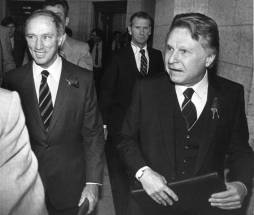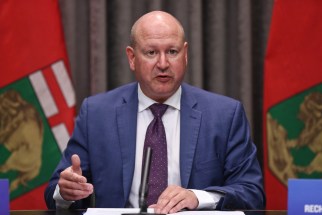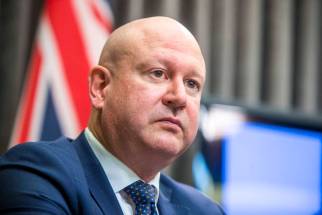Budget lessons of past lost on current government
Read this article for free:
or
Already have an account? Log in here »
To continue reading, please subscribe:
Monthly Digital Subscription
$0 for the first 4 weeks*
- Enjoy unlimited reading on winnipegfreepress.com
- Read the E-Edition, our digital replica newspaper
- Access News Break, our award-winning app
- Play interactive puzzles
*No charge for 4 weeks then price increases to the regular rate of $19.00 plus GST every four weeks. Offer available to new and qualified returning subscribers only. Cancel any time.
Monthly Digital Subscription
$4.75/week*
- Enjoy unlimited reading on winnipegfreepress.com
- Read the E-Edition, our digital replica newspaper
- Access News Break, our award-winning app
- Play interactive puzzles
*Billed as $19 plus GST every four weeks. Cancel any time.
To continue reading, please subscribe:
Add Free Press access to your Brandon Sun subscription for only an additional
$1 for the first 4 weeks*
*Your next subscription payment will increase by $1.00 and you will be charged $16.99 plus GST for four weeks. After four weeks, your payment will increase to $23.99 plus GST every four weeks.
Read unlimited articles for free today:
or
Already have an account? Log in here »
Hey there, time traveller!
This article was published 07/04/2022 (1340 days ago), so information in it may no longer be current.
When Liberal finance minister Al MacEachen rose in the House of Commons to deliver his budget speech in 1981, there was a stark message for Canadians.
Inflation, which had soared to its highest levels in 33 years, was destroying the economy and hitting low-income families the hardest. The only way to wrestle it to the ground was through fiscal restraint and high interest rates.
“We are confronted by severe inflation and extremely high interest rates,” said MacEachen. “Inflation rates at their present levels are bringing economic growth to a standstill and creating grave inequities among Canadians.”
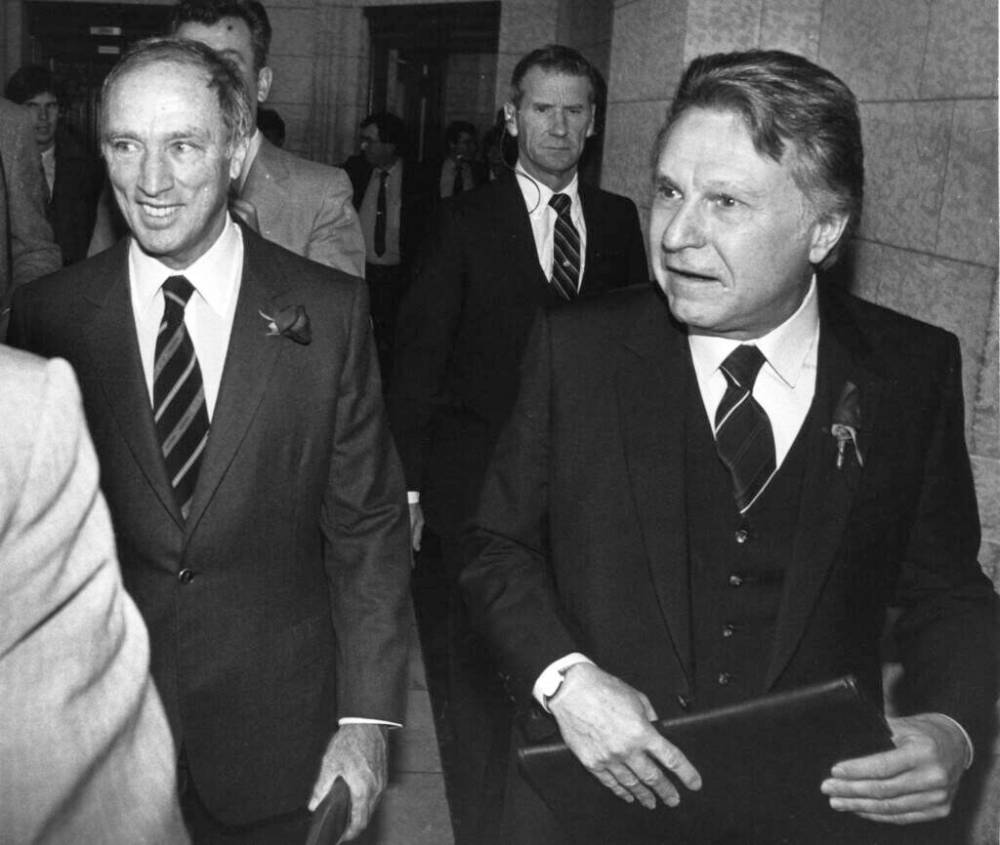
Ignoring it would have serious consequences, he warned. Canadians would not enjoy economic prosperity until inflation was brought under control. After years of heavy spending and record deficits, the federal government had no choice but to turn off the spending taps.
“The control of the money supply by the Bank of Canada is an essential element in our strategy to fight inflation, but it has to be supported by greater fiscal restraint,” said the Nova Scotia MP, who was elected to Parliament 10 times and died in 2017 at age 96.
MacEachen was right: high interest rates and reduced spending brought inflation down within two years. Canadians paid a heavy price through an induced recession. However, the pain would have been worse had inflation not been tackled.
“The control of the money supply by the Bank of Canada is an essential element in our strategy to fight inflation, but it has to be supported by greater fiscal restraint.” – Al MacEachen
The current Liberal government doesn’t share MacEachen’s urgency to combat rising prices.
Granted, Canada’s inflation rate today is “only” 5.7 per cent; it was above 12 per cent in 1981. Still, there are no signs the growth in the consumer price index (the highest since 1991) will let up any time soon, owing to rising commodity prices, supply chain disruptions and flush Canadian bank accounts that are driving up demand for goods.
There are too many dollars chasing too few goods. When that happens, prices rise.
Canada is a long way from reaching the inflationary peaks MacEachen battled in 1981. However, left unchecked, it could approach double-digits quickly.
The destruction that would cause, particularly to lower-income Canadians, would be catastrophic. Household incomes would be crushed, small businesses — still reeling from the COVID-19 pandemic — would be decimated and interest rates would have to rise further to tamp down runaway prices.
Finance Minister Chrystia Freeland’s federal budget introduced Thursday is an inflationary spending plan. It will do the opposite of MacEachen’s policy.
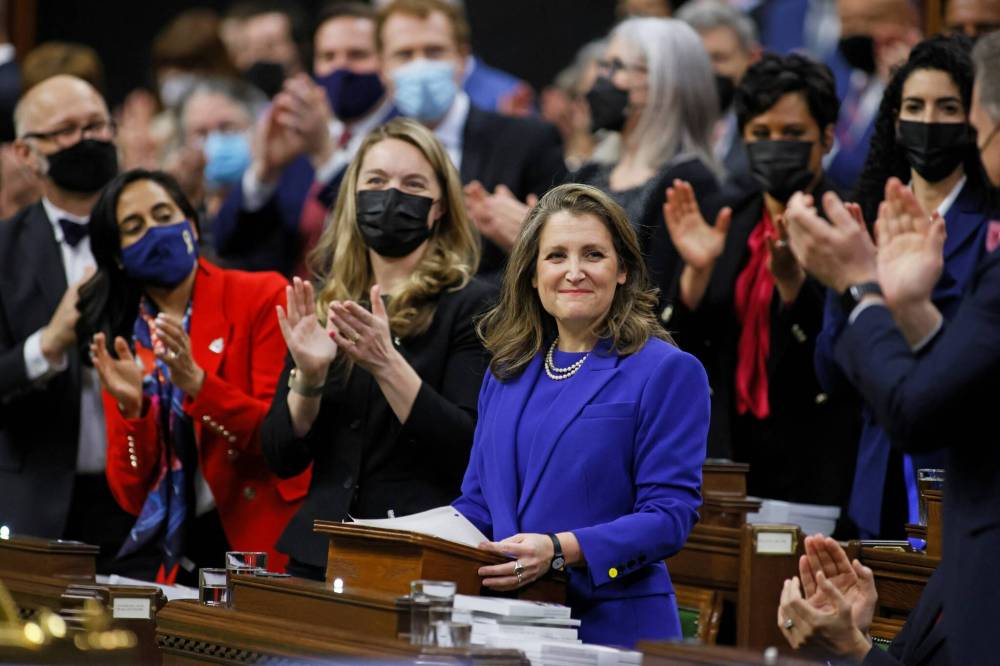
She has shown no fiscal restraint. The heavy spending included in this fiscal blueprint will fuel inflation and run counter to the efforts of the Bank of Canada, which is expected to announce multiple interest rate hikes this year.
Program spending in Thursday’s budget declines compared to last year. That was expected with the winding down of COVID-19 pandemic relief efforts. However, compared with 2019-20 — the year prior to the pandemic — program spending is up a staggering 25 per cent, to $425 billion.
Despite higher-than-expected revenues, the Liberals are still projecting a deficit of $53 billion, far higher than the $29-billion shortfall in 2019-20. Public debt charges are expected to jump nearly 60 per cent to $43 billion (from $27 billion) five years from now. There are still no plans to balance the books.
Meanwhile, federal debt — which understandably ballooned during the pandemic — is projected to rise again this year to $1.2 trillion, up from $1.16 trillion last year. Instead of using higher revenues to pay down debt, the Liberals are projecting it will rise to $1.3 trillion by 2026-27.
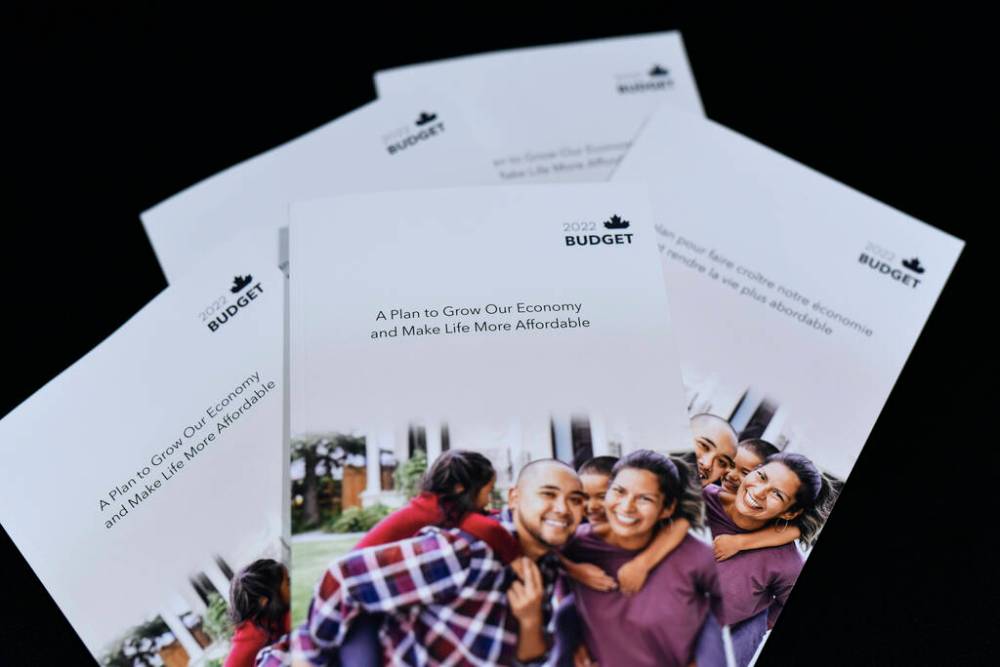
It’s irresponsible. While debt-to-GDP is expected to fall during that period, to 41 per cent from 45 per cent, it’s still well-above the 31 per cent prior to the pandemic.
Runaway inflation is the single biggest current threat to Canada’s economy. The longer government waits to address it, the more painful the ultimate response will be. Despite that, inflation was largely ignored in this budget.
There are many factors driving up prices around the world — much of which, governments have little to no control over. What they do control is fiscal and monetary policy.
Instead of using those levers to control inflation, the Liberal government has — for short-term political gain — exacerbated the situation. Canadians will pay a steep price for that shortsightedness.
tom.brodbeck@freepress.mb.ca

Tom has been covering Manitoba politics since the early 1990s and joined the Winnipeg Free Press news team in 2019.
Our newsroom depends on a growing audience of readers to power our journalism. If you are not a paid reader, please consider becoming a subscriber.
Our newsroom depends on its audience of readers to power our journalism. Thank you for your support.




